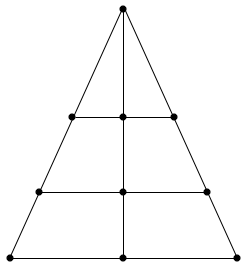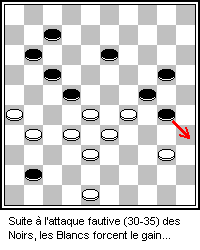|
Hat Diviyan Keliya
Hat diviyan keliya is a two-player abstract strategy game from Sri Lanka (formerly called Ceylon). It is a Leopard hunt game (or Leopard game). One tiger is going up against seven leopards. The leopards attempt to surround and trap the tiger while the tiger attempts to capture enough of them so that the leopards can not trap it. The game was originally documented as Hatdiviyan or "Seven Leopards" by Leopold Ludovici in The ''Journal of the Ceylon Branch of the Royal Asiatic Society'' (1873), and specifically in the chapter entitled ''The Sports and Games of the Singhalese'' which he wrote himself, he provides a written description of the game and an illustration. The game was then documented by Henry Parker as Hat diviyan keliya in his work ''Ancient Ceylon: An Account of the Aborigines and of Part of the Early Civilisation'' (1909), and he transcribed its name as ''The Game of the Seven Leopards''. Parker provides a written description of the game, but not a diagram. He does h ... [...More Info...] [...Related Items...] OR: [Wikipedia] [Google] [Baidu] |
Abstract Strategy Game
Abstract strategy games admit a number of definitions which distinguish these from strategy games in general, mostly involving no or minimal narrative theme, outcomes determined only by player choice (with no randomness), and perfect information. For example, Go is a pure abstract strategy game since it fulfills all three criteria; chess and related games are nearly so but feature a recognizable theme of ancient warfare; and Stratego is borderline since it is deterministic, loosely based on 19th-century Napoleonic warfare, and features concealed information. Definition Combinatorial games have no randomizers such as dice, no simultaneous movement, nor hidden information. Some games that do have these elements are sometimes classified as abstract strategy games. (Games such as '' Continuo'', Octiles, '' Can't Stop'', and Sequence, could be considered abstract strategy games, despite having a luck or bluffing element.) A smaller category of abstract strategy games manages to ... [...More Info...] [...Related Items...] OR: [Wikipedia] [Google] [Baidu] |
Sri Lanka
Sri Lanka (, ; si, ශ්රී ලංකා, Śrī Laṅkā, translit-std=ISO (); ta, இலங்கை, Ilaṅkai, translit-std=ISO ()), formerly known as Ceylon and officially the Democratic Socialist Republic of Sri Lanka, is an island country in South Asia. It lies in the Indian Ocean, southwest of the Bay of Bengal, and southeast of the Arabian Sea; it is separated from the Indian subcontinent by the Gulf of Mannar and the Palk Strait. Sri Lanka shares a maritime border with India and Maldives. Sri Jayawardenepura Kotte is its legislative capital, and Colombo is its largest city and financial centre. Sri Lanka has a population of around 22 million (2020) and is a multinational state, home to diverse cultures, languages, and ethnicities. The Sinhalese are the majority of the nation's population. The Tamils, who are a large minority group, have also played an influential role in the island's history. Other long established groups include the Moors, the Burghers ... [...More Info...] [...Related Items...] OR: [Wikipedia] [Google] [Baidu] |
Leopard Hunt Game
Leopard hunt games or simply leopard games are a group of abstract strategy games of Southeast Asian origin, similar in spirit to European fox games, although they are believed to have arisen independently. The games are usually played on a triangular board with three horizontal parallel lines (including the triangle's base) intersecting the other two sides of the triangle and a vertical bisector. Though a number of variants exist, the basic principle of the game sees one player with a single piece (the hunter) and the other playing six or seven pieces (the hunted). Players move pieces in turn along the board's lines. The objective for the hunter is to capture the opponents pieces by "jumping" over them as in checkers while the hunted seeks to corner the hunter so that it has no possible move. Regional variants include: * Len Choa * Hat diviyan keliya * Aadu puli attam The Lambs and Tigers Game locally referred as the Game of Goats and Tigers ( ta, Aadu puli aatam, te, M ... [...More Info...] [...Related Items...] OR: [Wikipedia] [Google] [Baidu] |
Thailand
Thailand ( ), historically known as Siam () and officially the Kingdom of Thailand, is a country in Southeast Asia, located at the centre of the Indochinese Peninsula, spanning , with a population of almost 70 million. The country is bordered to the north by Myanmar and Laos, to the east by Laos and Cambodia, to the south by the Gulf of Thailand and Malaysia, and to the west by the Andaman Sea and the extremity of Myanmar. Thailand also shares maritime borders with Vietnam to the southeast, and Indonesia and India to the southwest. Bangkok is the nation's capital and largest city. Tai peoples migrated from southwestern China to mainland Southeast Asia from the 11th century. Indianised kingdoms such as the Mon, Khmer Empire and Malay states ruled the region, competing with Thai states such as the Kingdoms of Ngoenyang, Sukhothai, Lan Na and Ayutthaya, which also rivalled each other. European contact began in 1511 with a Portuguese diplomatic mission to Ayutthaya, w ... [...More Info...] [...Related Items...] OR: [Wikipedia] [Google] [Baidu] |
Draughts
Checkers (American English), also known as draughts (; British English), is a group of strategy board games for two players which involve diagonal moves of uniform game pieces and mandatory captures by jumping over opponent pieces. Checkers is developed from alquerque. The term "checkers" derives from the checkered board which the game is played on, whereas "draughts" derives from the verb "to draw" or "to move". The most popular forms of checkers in Anglophone countries are American checkers (also called English draughts), which is played on an 8×8 checkerboard; Russian draughts, Turkish draughts both on an 8x8 board, and International draughts, played on a 10×10 board – the latter is widely played in many countries worldwide. There are many other variants played on 8×8 boards. Canadian checkers and Singaporean/Malaysian checkers (also locally known as ''dum'') are played on a 12×12 board. American checkers was weakly solved in 2007 by a team of Canadian computer s ... [...More Info...] [...Related Items...] OR: [Wikipedia] [Google] [Baidu] |
Abstract Strategy Games
Abstract strategy games admit a number of definitions which distinguish these from strategy games in general, mostly involving no or minimal narrative theme, outcomes determined only by player choice (with no randomness), and perfect information. For example, Go is a pure abstract strategy game since it fulfills all three criteria; chess and related games are nearly so but feature a recognizable theme of ancient warfare; and Stratego is borderline since it is deterministic, loosely based on 19th-century Napoleonic warfare, and features concealed information. Definition Combinatorial games have no randomizers such as dice, no simultaneous movement, nor hidden information. Some games that do have these elements are sometimes classified as abstract strategy games. (Games such as '' Continuo'', Octiles, '' Can't Stop'', and Sequence, could be considered abstract strategy games, despite having a luck or bluffing element.) A smaller category of abstract strategy games manages to ... [...More Info...] [...Related Items...] OR: [Wikipedia] [Google] [Baidu] |
_--_2021_--_6741.jpg)


